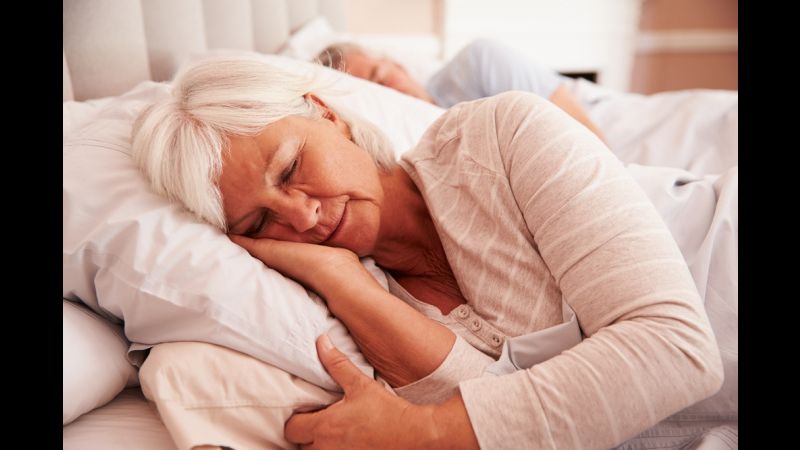It’s hard to overstate the important role that sleep plays in all of our lives. Sleep can dictate how fast or slow our metabolism functions, aid in helping us lose weight, boost cognitive function and even raise our blood pressure and increase our risk of heart disease. And it seems that sleep disruption becomes more prevalent with age, as insomnia in the elderly is quite common.
According to a 2008 research study, it is estimated that between 40 and 50 percent of people over the age of 60 report having difficulty sleeping at night. There are varied reasons for why older adults have trouble sleeping, including side effects of certain medications, depression, heart failure, lung disease and even osteoarthritis.
Symptoms of Insomnia
There are different types of insomnia--from short-term insomnia that lasts between one and six months, to chronic insomnia, which seemingly takes over your life. No matter which type you may have, the effects of not sleeping can be very disruptive to your daily life.
According to WebMD, symptoms of insomnia can go beyond just the inability to sleep at night. Additional symptoms include:
- Waking up during the night
- Waking up too early
- Not feeling well-rested after a night’s sleep
- Daytime fatigue
- Irritability, depression or anxiety
- Difficulty paying attention or focusing on tasks
- Increased accidents
- Ongoing worries about sleep
Insomnia in the elderly can also lead to increased falls and risk of injury. An article in the New York Times entitled, “Getting older, Sleeping Less,” even cites a study of nursing home residents which found that “untreated insomnia also increases the risk of falls and fractures.”
Insomnia And Falls
While many of the symptoms of insomnia can be troubling, an increased risk of experiencing falls can have grave consequences. Since a lack of sleep can create mental fogginess, it can also slow your reaction time when faced with physical obstacles in your way. This can lead to injuries, some of which could land you in the Emergency Room.
Mix lack of sleep with a decline in balance and coordination that can also increase with age and it can be a recipe for disaster, especially if you live alone. Senior fall prevention is essential for those suffering from insomnia, including investing in a medical alert device from Medical Guardian. By connecting you to a live operator at the push of a button, you can rest assured knowing that Medical Guardian has your back whether you fall from fatigue during daylight hours or in the middle of the night.
Get A Good Night’s Sleep
Of course, senior fall prevention starts with a good night’s sleep. Start by making some changes to your daily routine:
- Eat A Light Dinner. If you typically eat a big meal before bed, you might want to scale it back a bit. Your body has to work overtime to digest your food, which can be a reason that you feel unsettled at night.
- Avoid Alcohol and Tobacco. Many people mistakenly think that having a glass of alcohol before bed will help them sleep, when in fact the opposite is true. While it may initially help you fall asleep, alcohol can prevent you from having a REM cycle, which will leave you feeling more tired when you wake up. As for tobacco products, they act as stimulants and can keep you up at night and disrupt your sleep.
- Don’t Bring A Cell Phone Into the Bedroom. Recent studies have shown that the combination of bright light and stimulation can throw you off before bedtime. To ensure that you can get a good night’s sleep, leave your cell phone in another room so that you won’t be tempted to look at it.
- Consider Blackout Curtains. Too much light, whether from the sun or street lamps, can disrupt your sleep patterns. Blackout curtains are a great way to get your bedroom dark enough to help stimulate your body to produce more melatonin.
Sometimes you can be doing all of these things and still suffering from insomnia in the elderly. That’s when it’s time to talk to your doctor about it. The symptoms of insomnia can sometimes overlap with other conditions, like sleep apnea or depression, so bringing it to the attention of your medical provider can end up bringing you relief on multiple levels.

